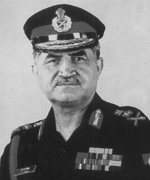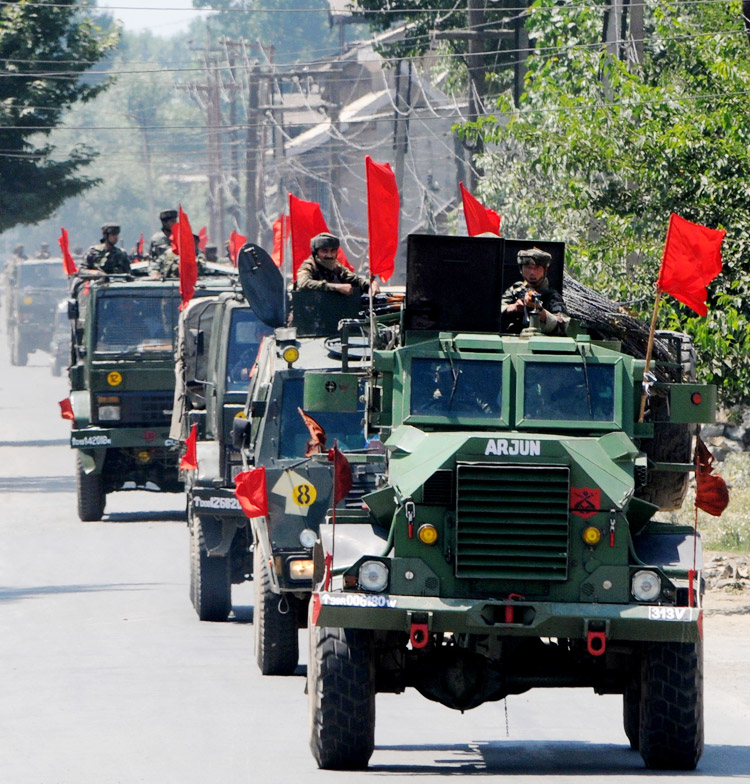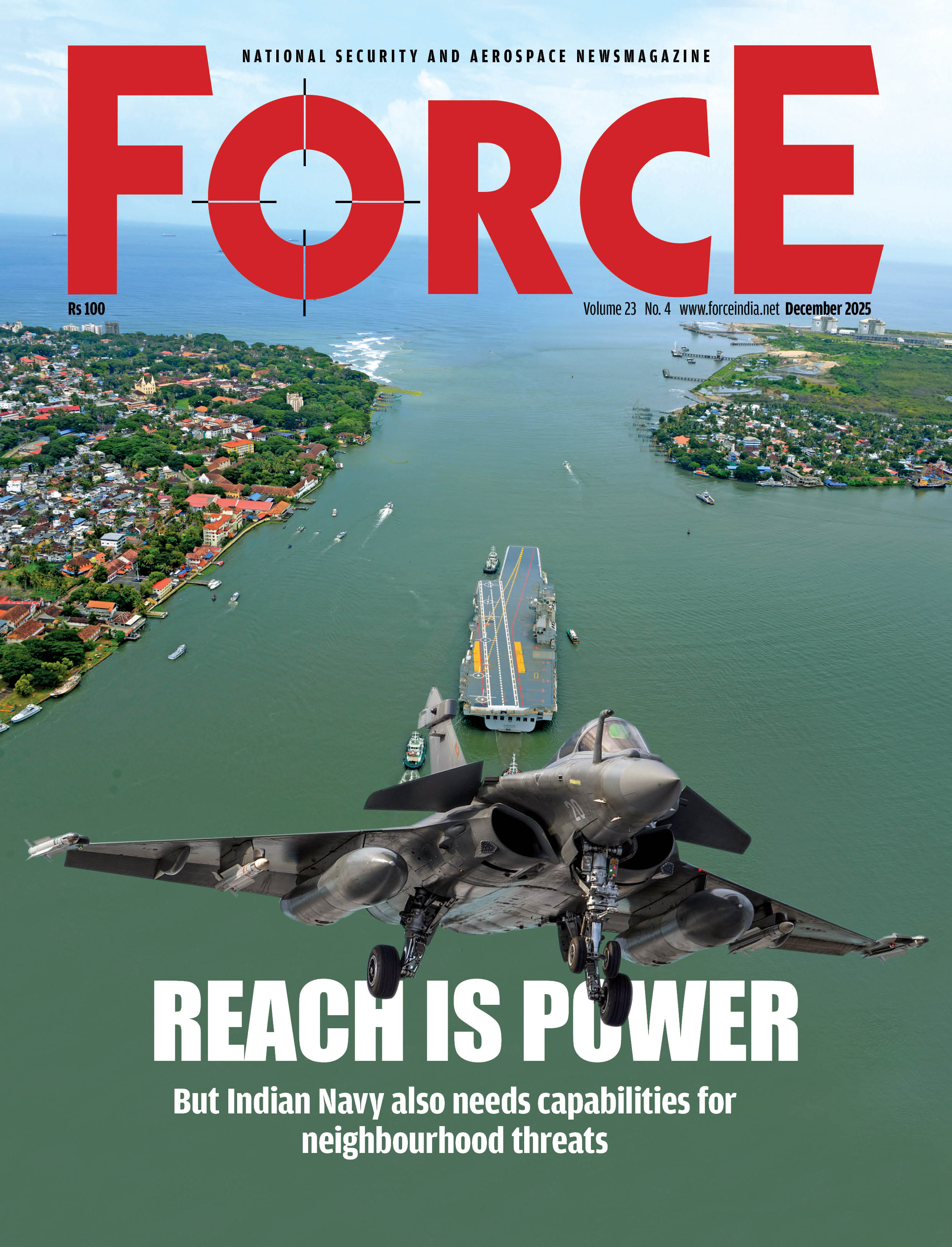Guest Column | Past Perfect, Future Tense
 General V.P. Malik (retd)
General V.P. Malik (retd)
India’s defence report card of the past seven decades is more positive than negative. But the credit for that goes less to our politics, policies and grand strategies; more to those responsible for the operational planning and execution on the ground.
We have had reactive policies, ad hoc defence planning, inadequate equipping, intelligence failures and strategic surprises. And yet, the armed forces have maintained India’s security and territorial integrity much better than any other developing, democratic nation in the world. The armed forces have also played an important role in our nation building.

Indian Army taking out a flag march in Kashmir
Their baptism started soon after Independence. The Indian Army was employed to force the reluctant rulers of Hyderabad and Junagarh to integrate their states with the rest of India. We had to defend Jammu and Kashmir (J&K) when Pakistani raiders, led and supported by Pakistani Army, attacked that state. We liberated Goa in 1961 and fought that ignominious Sino-Indian war in 1962. In 1965, Pakistani ruler, General Ayub Khan launched Operation Gibraltar in J&K after a side-show in Kutch. In 1967, there was a skirmish with China at Nathu La. The third India-Pakistan war in 1971 resulted in a glorious military victory: liberation of Bangladesh, return of Bengali refugees, and a huge dent on the Pakistan Army.
In 1984, we pre-empted Pakistani attempt to occupy Siachen Glacier. The Wangdung skirmish with China took place in 1986. In 1987-88, because of the Indo-Sri Lanka Agreement, we intervened in Sri Lanka’s civil war, and then in an exemplary rapid action across the Indian Ocean, we put down an attempted coup in the Maldives at the request of its government.
In 1999, despite intelligence failure, strategic and tactical surprise, we defeated Pakistan’s attempted intrusion in the Kargil sector.
Apart from these external security engagements, the security forces have fought insurgencies in North-eastern states since mid-Fifties, Naxalites in West Bengal in late Sixties, and terrorism in Punjab in the mid-Eighties. They continue to fight Pakistan-sponsored proxy war in J&K since the late Eighties.
Since the mid-Fifties, the armed forces have also worked in many United Nations peacekeeping missions, contributing to international peace and India’s image. Till date, we have lost about 160 soldiers while performing these duties.
Besides these operational successes, the defence forces have made a substantial contribution to nation-building; its consolidation, and its political stability. They remain a role model of ‘unity in diversity’: of secularism and of an apolitical outlook with loyalty only to India’s Constitution. Despite the raising of National Disaster Relief Force (NDRF), they remain India’s chief rescue and relief force in any disaster management mission.
Then why do I say less to our politics, policies and grand strategies?
1
Barring the 1962 war with China, which taught strategic lessons that we often tend to forget, India’s national defence has been ensured in all military engagements. Unfortunately, many a time we have failed to convert sacrifices and hard-won operational achievements into long-term politico-strategic successes.
In 1948, we decided to approach the United Nations on the J&K issue, just when our forces were about to reach the gates of Muzaffarabad. We conceded suzerainty to China over Tibet in 1954 without any quid pro quo, and thus created
Subscribe To Force
Fuel Fearless Journalism with Your Yearly Subscription
SUBSCRIBE NOW
We don’t tell you how to do your job…
But we put the environment in which you do your job in perspective, so that when you step out you do so with the complete picture.







